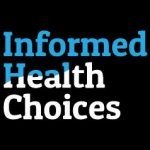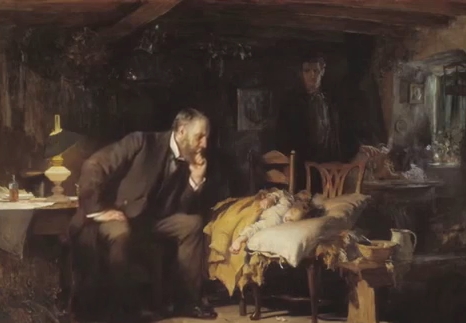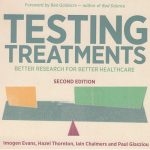
Informed Health Choices Primary School Resources
A textbook and a teachers’ guide for 10 to 12-year-olds. The textbook includes a comic, exercises and classroom activities.
| 0 Comments | Evaluated
Sunn Skepsis
Denne portalen er ment å gi deg som pasient råd om kvalitetskriterier for helseinformasjon og tilgang til forskningsbasert informasjon.
| 0 Comments

Tamiflu: securing access to medical research data
A campaign by researchers has shown that Roche spun the research on Tamiflu to meet their commercial ends.
| 0 Comments
Personal “No Worse”
People with vested interests may use misleading statistics to support claims about the effects of new treatments.
| 0 Comments
More is less: an investigation of unnecessary testing
This is a US radio production about unnecessary testing and the associated harm to patients and costs to the health system.
| 0 Comments
Viva la Evidence!
A brilliant song and video by James McCormack explaining the basics of evidence-based medicine.
| 0 Comments
Ben Goldacre talks about Bad Pharma on C-SPAN
In this 90 minute videoed lecture, Ben Goldacre talks about key issues raised in his book 'Bad Pharma'.
| 0 Comments
Manipulating doctors: testimony from an ex-drug rep
In this 10-min video, Gwen Olsen, a former pharmaceutical sales representative, talks about manipulating doctors to sell more drugs.
| 0 Comments
Help at last for the Annoyingly Cheerful
This humorous video by the Onion illustrates some of the tactics used to push unnecessary treatments or "sell" sickness.
| 1 Comment
On being sucked into a maelstrom
In 2006, a patient in the UK, who happened to be medically trained, found herself swept along by the Herceptin […]
| 0 Comments
New – but is it better?
Key points Testing new is necessary because new treatments are as likely to be worse as they are to be […]
| 0 Comments
Pester power and new drugs
‘New drugs by their very nature are incomplete products, as full information about their safety, effectiveness and impact on costs […]
| 0 Comments
Impact of “me-too” drugs in Canada
‘In British Columbia most (80%) of the increase in drug expenditure between 1996 and 2003 was explained by the use […]
| 0 Comments
Who decides what gets studied?
Clearly this situation is unsatisfactory, so how has it come about? One reason is that what gets studied by researchers […]
| 2 Comments
Questions that are important for patients
Researchers in Bristol decided to pose a fundamental question: ‘To what extent are questions of importance to patients with osteoarthritis […]
| 0 Comments
Herceptin
Commercial companies are not alone in trumpeting the advantages of new treatments while down-playing drawbacks. Professional hype and enthusiastic media […]
| 1 Comment
Mechanical heart valves
Drugs are not the only treatments that can have unexpected bad effects: non-drug treatments can pose serious risks too. Mechanical […]
| 0 Comments
Avandia
2010 saw another drug – rosiglitazone, better known by the trade name Avandia – hitting the headlines because of unwanted […]
| 0 Comments
Vioxx
Although drug-testing regulations have been tightened up considerably, even with the very best drug-testing practices there can be no absolute […]
| 0 Comments
Thalidomide
Thalidomide is an especially chilling example of a new medical treatment that did more harm than good. [1] This sleeping […]
| 0 CommentsNo Resources Found
Try clearing your filters or selecting different ones.
Browse by Key Concept
Back to Learning Resources homeJargon buster
About GET-IT
GET-IT provides plain language definitions of health research terms
